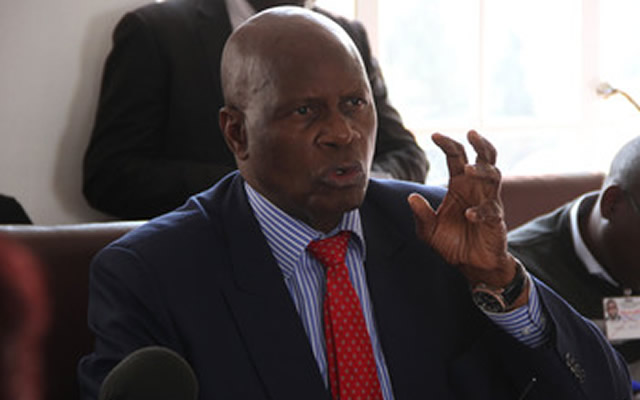EDITORIAL COMMENT: Budget to stimulate economic revival

THE 2016 national budget statement is out and Zimbabwe now needs to focus ahead and continue pushing towards that desired economic destiny.
The year 2015 has not been a rosy one given persistent tight liquidity conditions, the effects of drought, limited access to international capital and declining global commodity prices.
These constraints weighed down on the projected average growth target of 3,2 percent, which will now close the year at 1,5 percent.
Even Finance Minister Patrick Chinamasa had to admit, while presenting a $4 billion budget statement for 2016 in Parliament on Thursday, that the country was going through a rough economic patch.
The future looks bright though, with all indications from the budget statement pointing to a silver lining beyond the immediate challenges.
“The economy is projected to grow by 2,7 percent in 2016 from 1,5 percent this year. Almost all sectors are expected to register a reasonable growth of between 1,3 percent and 4,5 percent. In order to catch up for the lost time we need higher economic growth rates,” said Chinamasa.
The minister made it clear that economic recovery requires a lot of funding, the bulk of which is expected to come from international financiers on the back of improved sentiment.
We applaud the government for accelerating re-engagement efforts with the international community and the commitment to clear close to $10 billion in external debt by June next year, paving way for the opening of fresh lines of credit.
A number of austerity measures, including streamlining of the public wage bill, are already underway in line with the International Monetary Fund (IMF) Staff Monitored Programme as the country moves to lure investment.
Most initiatives are aimed at improving the ease of doing business in Zimbabwe, reducing the country risk and restoring fiscal and external sustainability.
We commend the minister for placing the revitalisation of the agricultural sector and its value chain, consolidating the gains made in the mining sector as well as boosting domestic manufacturing industry capacity utilisation and export competitiveness, as major priorities for next year’s budget.
Increased activity in these sectors will no doubt quicken economic growth and create more job opportunities for a majority of ordinary Zimbabweans.
Chinamasa said exports were projected to clock $3,7 billion from $3,4 billion in 2015 on the back of the anticipated favourable performance of minerals such as gold and chrome as well as growth in tobacco and horticultural products’ output.
Agriculture, the backbone of the country’s economy, is projected to recover by 1,8 percent.
Meanwhile, inflation will generally remain subdued in 2016 at an average -1,6 percent reflecting a combination of continuous price correction, weak aggregate demand, tight liquidity conditions and competitive pressures arising from the weakening of the rand against the United States dollar.
Greater impetus is expected in the medium to long term, according to Chinamasa, with success in the implementation of proposed fiscal policy interventions.
The introduction of rebate duty on capital equipment imported by mining, manufacturing, agriculture and energy sectors, for equipment valued at $1 million and above with effect from January 1, 2016, is a bold step in the right direction.
The reduction of mining royalty rates from five to three percent on incremental output of gold will also be a big incentive to the sector.
Chinamasa announced the gazetting of a Special Economic Zones (SEZs) Bill, whose implementation framework now awaits approval by Parliament.
We applaud the government for pushing for adoption of this strategy, which is expected to modernise and unlock more investment opportunities across economic sectors.
The minister was candid on the need to urgently address crippling power shortages and allocated $482 million for energy generation projects in addition to private-funded initiatives.
However, news of the collapse of the $750 million Essar Africa takeover deal at the Redcliff-based New Zimsteel is disheartening given the hope the country had pinned on the revival of the strategic firm.
Chinamasa said contracts for workers at the firm would be terminated on three months’ notice to avoid accumulation of debts from unproductive employees.
He, however, said the government would bear the labour costs as it moves ensure the now defunct parastatal was attractive to a new investor.
We feel these and other initiatives as contained in the budget statement should be supported by every progressive Zimbabwean.
We urge ministries, the business community and development partners, to collectively rally behind Chinamasa in implementing the proposed economic initiatives.









Comments